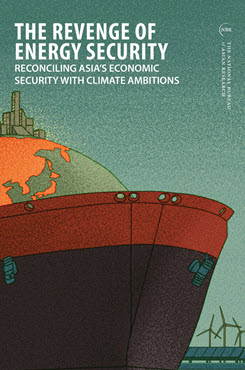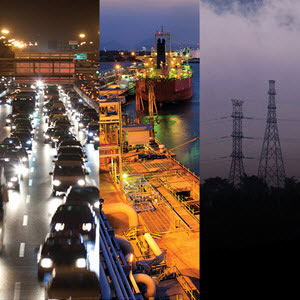Essay in NBR Special Report 105
Realizing LNG’s Potential to Meet Southeast Asia’s Energy and Climate Goals
This essay examines the potential role of liquefied natural gas (LNG) in meeting Southeast Asian energy and climate goals and recommends collective and country-level policy actions to realize its full potential.
EXECUTIVE SUMMARY
MAIN ARGUMENT
Southeast Asian countries are looking to decrease carbon emissions while meeting growing energy demand. The region is heavily reliant on coal, and LNG faces hurdles that will limit its role if not addressed. These include policymakers’ perceptions of LNG as a scarce, price-volatile, and premium fuel source, as well as the need to invest significantly in infrastructure, develop stronger regulatory frameworks, and deploy greater use of carbon capture and storage (CCS) to support climate goals. Additionally, strong domestic constituencies and political transitions underway in key countries are increasing price sensitivity. As a result, LNG’s role in Southeast Asia’s energy mix is likely to remain important but limited in the absence of policy and market interventions. These will require ambitious, country-level policy initiatives and reforms, as well as international collaboration within ASEAN and with international partners, to address these challenges.
POLICY IMPLICATIONS
- Southeast Asia urgently needs reliable baseload alternatives to coal to reduce emissions, particularly in the power sector. Integrating more natural gas over coal is a clear pathway toward emission reductions given the current limitations of geothermal, hydropower, and battery storage and public concerns over nuclear safety.
- For LNG to play a more significant role in the regional energy mix, key stakeholders need to address concerns over affordability, geopolitical uncertainty, market volatility, and long-term investments in fossil fuel sources in the context of growing environmental and climate concerns. If these challenges are not addressed, LNG is currently poised to grow in volume, but it will not realize its full potential to displace coal and reduce emissions.
- Policymakers need to act collectively to provide greater confidence to investors in the future role of natural gas, including by providing stronger investment frameworks and market signals.
- Given that LNG infrastructure investments are made over horizons of 25–30 years and given the rapid pace of technological development in renewable energy resources, more widespread and cost-effective use of CCS is needed to ensure the viability of long-term investments.
Meredith Miller is a Partner at Albright Stonebridge Group, part of Dentons Global Advisors. She co-leads the firm’s East Asia and Pacific practice, informed by more than two decades of experience working on U.S.–Southeast Asia relations.



 The Revenge of Energy Security: Reconciling Economic Security with Climate Ambitions in the United States and Asia
The Revenge of Energy Security: Reconciling Economic Security with Climate Ambitions in the United States and Asia
